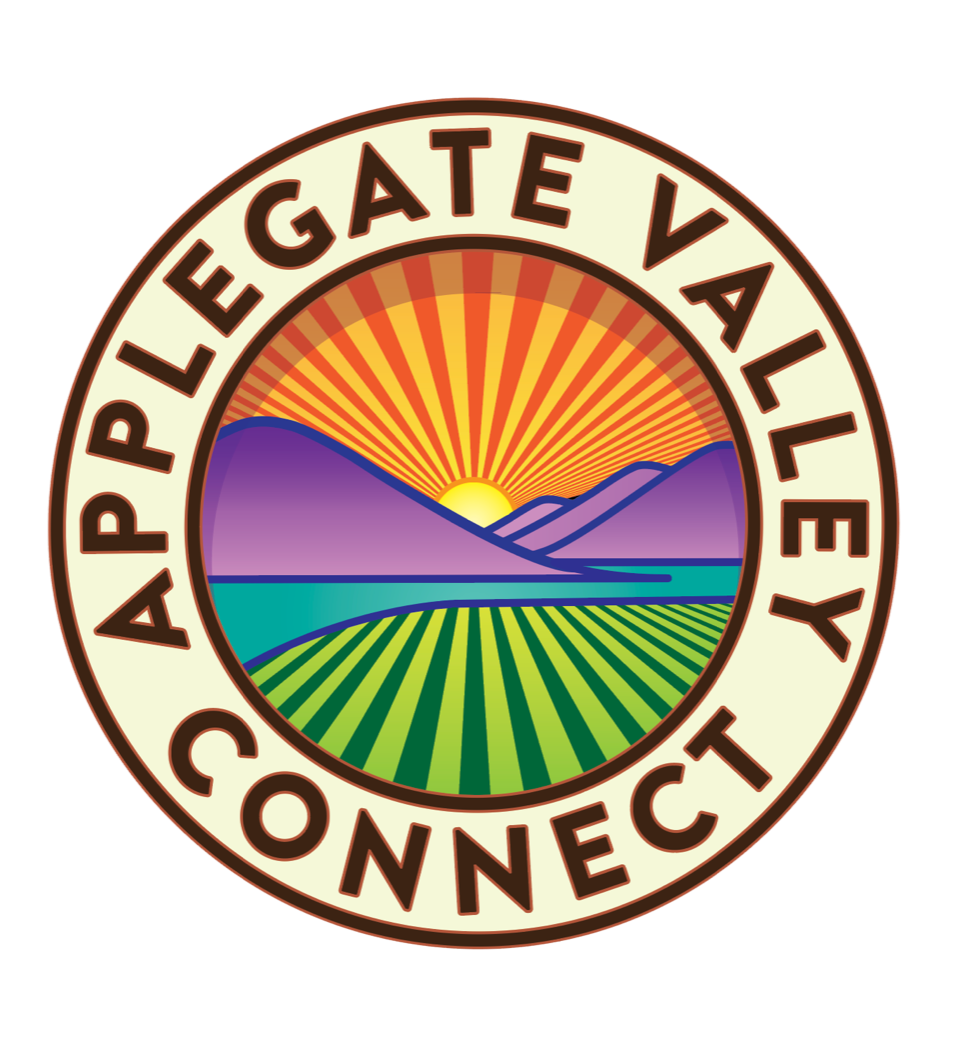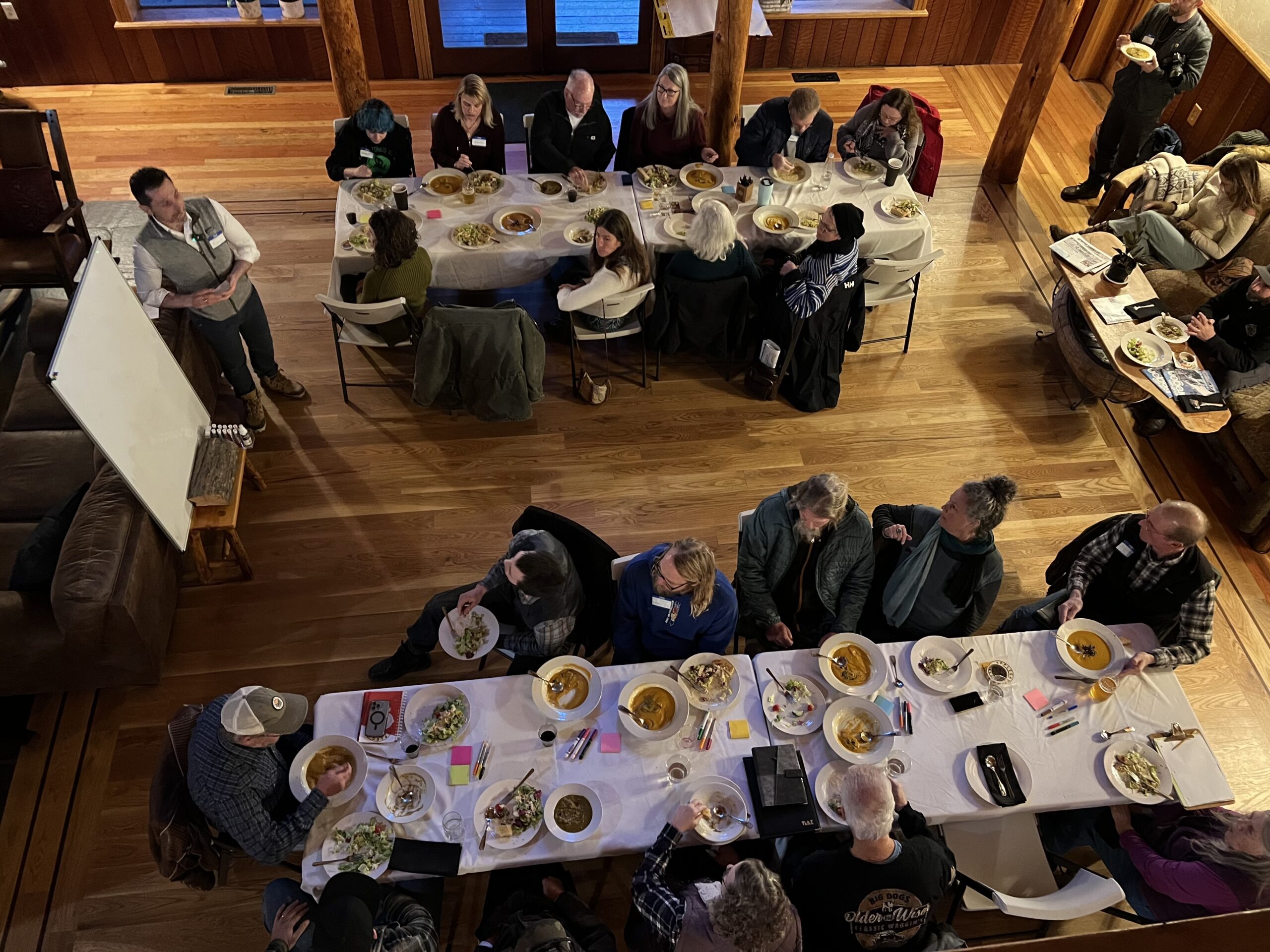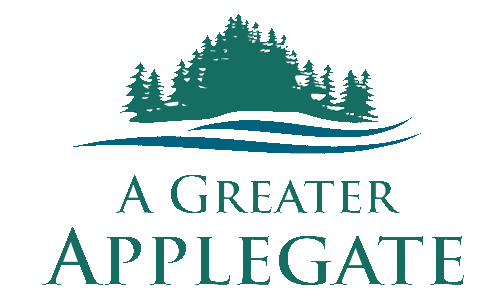Applegate business owners gather to examine obstacles through the lens of “regenerative economics.”
The word “regenerative” is popping up all over the place these days, and for good reason. The word embodies efficiency, low-waste, and goes beyond the “leave-no-trace” ethos of yesteryear. To be regenerative means not just to leave something undamaged, but actually better than we found it. ‘Regenerative’ is most often associated with agriculture, but is being applied everywhere: Architecture, medicine, tourism, and more.
On February 29th, A Greater Applegate hosted a presentation called “Regenerative Economics” at the Lindsay Lodge. Business owners from around the valley gathered to share dinner and brainstorm with Henry Finklestein about how the term could be applied locally.
Finklestein arrived to the Applegate Valley with extensive business experience: He is a graduate from Yale University and Stanford Business School and has worked with marketing and tech companies for over 20 years. Still, he only moved here six months ago, so was positioned and ready to learn as much from the audience as much as they were to learn from him. Many of the themes he broached were familiar: The value of collaboration, storytelling, and cutting waste in businesses.
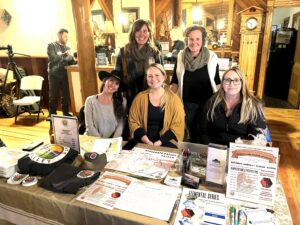
The Regenerative Economics workshop was sponsored by A Greater Applegate.
Applegaters have been wrestling with these ideals for years—decades even–and spent the years of 2019 and 2020 outlining their aspirations in the Applegate Valley Vision, an 89-page document that outlines residents’ concerns and 500 ideas for action. Still, it’s always good to gather and explore these themes from new perspectives.
“It’s great to have fresh energy!” attendee Maxwell Unger said. The meeting was enhanced by local wine and squash curry provided by the Lodge.
Finklestein was fast-paced and enthusiastic as he led the group through a series of exercises where participants listed the inputs, outputs and byproducts of their businesses. The fireplace crackled in the background and this longtime Applegate gathering space— and the group—began to warm. The simple act of sharing space always jumpstarts the creativity and bonding that forms the heart of these events.
It’s good to list your inputs, Finklestein explained, and look for opportunities to collaborate. A vintner, for example, orders quantities of bottles and packing boxes. Could all the winery owners pool together and procure a better bulk price? He then asked the group to list byproducts. In the case of a winery, this could be the left-over pumice of the wine-making process. Can it be used as fertilizer (or an exfoliant in a facial scrub)?
After then detailing the ‘outputs’—the products—the group thought of creative ways to get their creations out into the world, whether just locally, or outside the valley. Cross-marketing and patronizing each other’s businesses were ideas.
 “If we can get good at telling the story of the Applegate, telling what we all love and find so beautiful about this valley, we can import the dollars needed to support that vision,” Finklestein said.
“If we can get good at telling the story of the Applegate, telling what we all love and find so beautiful about this valley, we can import the dollars needed to support that vision,” Finklestein said.
Some expressed concern that this storytelling could prove too successful: Does the Applegate risk losing its unique sense of identity to development and over-exposure? Jeremy Hall from Blossom Barn Cidery was in the audience: “We’re unique, we’re not Napa. We don’t want $35,000/acre land in the Applegate valley. We don’t want $100 wine tastings. We need to be careful going down this road.”
Finklestein suggested the group use Napa as a model that can be learned from, both in what should be embraced—and avoided.
 At one point in the meeting, Finklestein helped the group list the obstacles to their visions.
At one point in the meeting, Finklestein helped the group list the obstacles to their visions.
“What are the bottlenecks to growth?” he asked.
The business owners were well-versed in what ails them: The county permitting process, distances, lack of full time labor, overhead costs, individualism, Internet, cash-flow, burn-out, a lack of representation and too few young people.
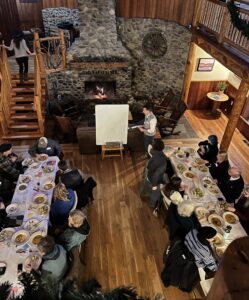 These problems have surfaced again and again over the years, and solving them has formed the premise of many a lively social gathering. In some ways, the gatherings were the solution, inspiring creativity and cross-pollination within the valley.
These problems have surfaced again and again over the years, and solving them has formed the premise of many a lively social gathering. In some ways, the gatherings were the solution, inspiring creativity and cross-pollination within the valley.
Meeting up also increased trust. Elise Higley from Oshala Farm said, “I think it’s important to have lots of talks like this, getting to know each other and building trust. To have trusting relationships allows you to open up and be able to collaborate and not be afraid of losing business.”
Heidi Martins from Crooked Barn Vineyards concurred. She saw a lot of value in the gathering and left feeling like the group should get together more, even without an agenda.
Finklestein encouraged this: “Who do you love to work with in this region? Who do you want to work with? What are things that you could be selling, but you aren’t today– whether that’s a byproduct, an online course, or something you could be doing but aren’t today. Start interweaving the knowledge and wisdom here.”
jb Palasini gave an example of the local flower farms who recently started coordinating to grow different flowers from one another.
Finklestein grabbed the metaphor. “How can we grow our respective flowers?” he asked.
Someone replied. “And make a bouquet.”
And another: “And sell it to each other and outside the valley.”
Interested in becoming a member of the Applegate Business Network? Click here.
